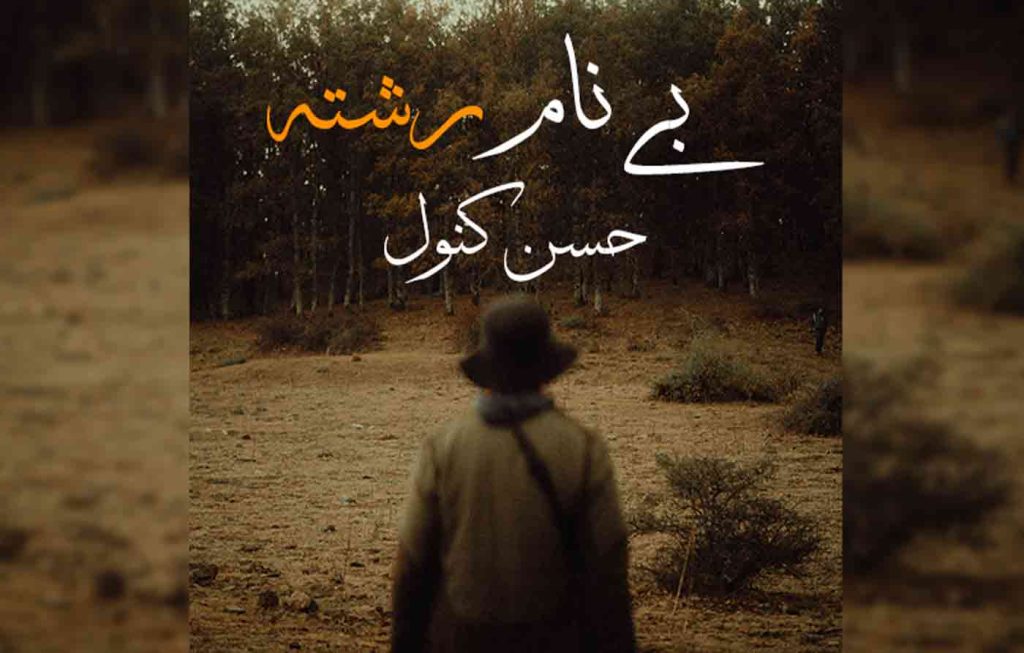
Unraveling the Complexity of Love and Relationships in Husny Kanwal’s Benaam Rishta
Husny Kanwal’s Benaam Rishta sensationally unravels the mystery of love, self-discovery, and often complicated relationships. This book, so well-full of emotions, draws readers to the complex matters arising when love is mixed and combined with fulfilling social expectations, personal desires, and even inner mental struggles. Benaam Rishta or “Nameless Relationship” summarizes the core theme of the novel: a connection that goes beyond names but, at the same time, remains undefined and full of bewilderment.
Emotionally, the protagonist rides on a ship called ‘Love’; however, the elusive nature of it keeps his life in suspense. The word “benam” suggests that it is not the relationship which falls into the tight definitions of romance, friendship, or ties between the family members. It is, as such, love that remains undefined, even unspoken, and perhaps somewhat misinterpreted. Characters in Benaam Rishta wrestle with such ambiguity as they struggle to maneuver within the confines of what falls within affection and attachment lines, what is necessary and what is sacrificed, freedom, and obligation.
Right from the very beginning, Husny Kanwal introduces readers to the complexities of the world that the protagonist lives in. She is a woman caught in a series of emotional dilemmas. Her love for someone does not have even a single reciprocation in many situations or if reciprocated it is done behind layers of societal expectations and personal insecurities. This creates a tension that propels the plot forward — the tension of what the heart seeks and what society dictates. Throughout the story, the protagonist finds herself torn between her deep desire for this kind of bonding and the fear of losing one’s identity in the process. This inner conflict forms the emotional texture of the story and profoundly gels with the reader who has similarly battled these thoughts in his real life.
The most striking feature about Benaam Rishta lies in its capturing of unsaid emotions governing human relationships. Characters in the story are not defined just through their action but also through silences, unspoken feelings, and unrealised desires. Beautifully, the narrative depicts how these unspoken subtle moments sometimes carry more weight than the words themselves. Be it the passing glance, missed conversations, or the quiet moment of understanding, Kanwal’s words sum up all that it is to be emotionally entangled and never to truly articulate it.
Another striking theme of the novel involves its exploration on societal expectations. More than being an internal con, it is also an external one because the pressures come not only from her family and friends but society itself regarding what her relationships ought to look like. The idea of “acceptable love” in the eyes of society plays a significant role in molding her decisions and actions. Imposing these restrictions onto her feelings and desires merely intensifies this frustration-the very strong wish to love without the need for sanction or permission. Kanwal’s understated presentation of these external influences throws a reflective perspective onto the many individuals striving to bridge private needs with social boundaries.
What makes Benaam Rishta really interesting is the presentation of this very issue-that of the unlabelled love. In a world in which so many relationships are defined by simple categorization, this novel juxtaposes that contradiction. The central relationship of the story finds itself in a space where it cannot easily be fit into one category or another-it is neither distinctly romantic, nor simply platonic, familial, or a friendship. This undefined, nameless nature of the relationship resonates with the emotional complexity of the characters involved. It makes a reader think of love in possibly more abstract terms-the different ways love and emotional attachments outside usual frameworks can occur.
One notable feature of the novel is the writing style of Kanwal. Her prose was so lyrical that it appeared very evocative, leaving the readers to feel the weight of the protagonist’s emotional struggles. The story seems paced somehow deliberately to give its characters time and space to come of age and grow. All throughout the book, one gets a sense of melancholy, as if the characters go through life with a relentless search for something always beyond their reach. However, moments of warmth and tenderness always intervene to remind the reader that even complicated and difficult love has the power to heal and transform.
Benaam Rishta has its fair share of richly developed characters, each bringing contradictions, vulnerabilities, and strengths to the story. The protagonist’s journey of self-discovery doesn’t revolve totally around finding love but opens herself up to what she believes she is worth, what she wants, and what she cannot and will not compromise on. She learns that love is not one to be forced into the molds of what people want it to be; it’s all raw and imperfect.
In short, Benaam Rishta by Husny Kanwal is a tastefully scripted novel that explores the deepest emotional levels of love, one’s identity, and societal expectations. A nameless relationship totally free from traditional labels opens up vistas of true love and love reciprocated. Kanwal’s writing captures the emotional depth and complexity in human connections, while this novel is a product that resonates with readers and provokes them into thought. It is always to remind us that love is not always easy or well-defined but always worth the journey. Whether it is a relationship that doesn’t go according to societal norms or one that has boundaries, Benaam Rishta shows that sometimes the deepest connections are those that can’t be named.



















